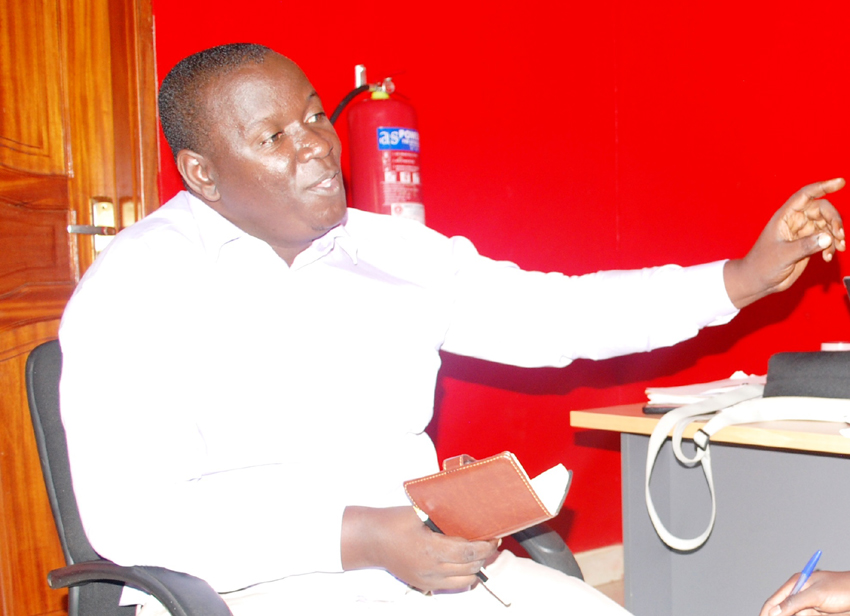At a Confessional a priest was taken aback by the Confession of a pious Christian woman, “Forgive me Father for I have sinned…,” she started in a muted voice, “Forgive me Father for the many times I have abused nature; I threw our home waste onto the street, I carelessly discarded plastic; I purchased too many clothes with greediness, I did not stop my neighbour from cutting trees, I used water more than I need…” The list of sins went on and on. The woman realized that she was abusing Nature; she accused herself of failing to take care of the beautiful world that God gave us. She felt that she failed to care for the responsibility of caring for the earth that God in his plan designed for her and for her fellow human beings.
Sin is the refusal of humankind to accept its God-given position between the Creator and lower creation. It flows from decisions to reject God’s way; God in his infinite wisdom wants all creatures to reach the maximum potentiality among which the human beings take precedence.
In the same line of thought we can certainly relate our environmental sins to pride, avarice, lust, gluttony and other related sins of selfishness. Pope Francis who can be rightly called “The Green Pope” is passionate about caring for the earth which he wants all of us to call it our home and invites everyone to care for the common home with love and care.
He called sins against the environment “ecocide.” Like the genocide that kills and destroys the whole nation or a race of people with pre-meditated actions, hatred, and extreme cruelty ecocide too kills and destroys a large part of the nature and permanently causes irreversible damage which deadly affects a large number of people, even up to several generations.
In his own words, the Green Pope explains ecocide as “massive contamination of the air, of the land and water resources, large-scale destruction of flora and fauna, and any action capable of producing an ecological disaster or destroying an ecosystem.” Now ecocide can be reversed only by a massive awareness campaign and the consolidated effort of every human being on earth. Now as the time is running out to repair and protect the earth everyone should feel that they have ‘sinned’ against the earth which is our common home.
Many thought-provoking definitions have been formulated. Most of them are related to the love of the neighbour and love of God—the two Great Commandments that Jesus gave us. One such definition says, “…Ecological sin is an action or omission against God, against one’s neighbor, the community and the environment. It is a sin against future generations, and it is committed in acts and habits of pollution and destruction of the harmony of the environment. These are transgressions against the principles of interdependence, and they destroy networks of solidarity among creatures and violate the virtue of justice.”
Every time we sin we hurt our neighbours and ultimately we hurt God. It is often done with underlying selfishness and self-centeredness. Now we commit eco-sins and participate in ecocide knowingly or unknowingly, but here too there is underlying selfishness, self-centeredness, egocentrism, and outright greediness.
Sins that we commit will always hurt us; we end up wounding ourselves immediately, after a while or sometimes much later. As scriptures point out that our sins can affect our children, grandchildren and even for generations. We have seen it happening. Surely we all agree that after our sins—mistakes, acts of omission and commission leave us with marks of guilt and remorse, often for a long time, even too difficult to erase them from our memory.
In the same way, our eco-sins affect us, hurt us and even destroy us sooner than we can imagine. But unfortunately they affect our children and grandchildren more than us who are the real offenders—the Eco-sinners.
All religions believe in an Another World where there is eternal life and perfect joy and there in that world there is no want. To possess this world we necessarily overcome this world with its passing happiness that is derived from happiness consumerism and materialism advocating for the accumulation of wealth.
This hyper-consumerism mentality of hyper-consumerism has its toll on the natural world. It has caused untold havoc –Eco-sins. Precious rainforests are now under threat, environmental limits are being breached, global inequality is rising, carelessly discarded plastic is floating in the environment as microplastics. Now we are unable to live the extreme climate change affecting our very lives that destroyed nature.
This means that at the heart of this crisis, is a crisis of the heart. Without a deep or inner conversion we are unlikely to get out of the mess that we now find ourselves in. This is why the ecological crisis is a summons to a profound interior conversion. Let us break the cycle of eco-sins and begin a new life with a greener environment where there is less pollution, less pollutants. Before we expect the world and others to begin caring for the world let us begin with ourselves—Ecological Conversion—living simpler lives.
Fr. Lazar Arasu SDB
Priest and School Administrator
Do you have a story in your community or an opinion to share with us: Email us at Submit an Article









